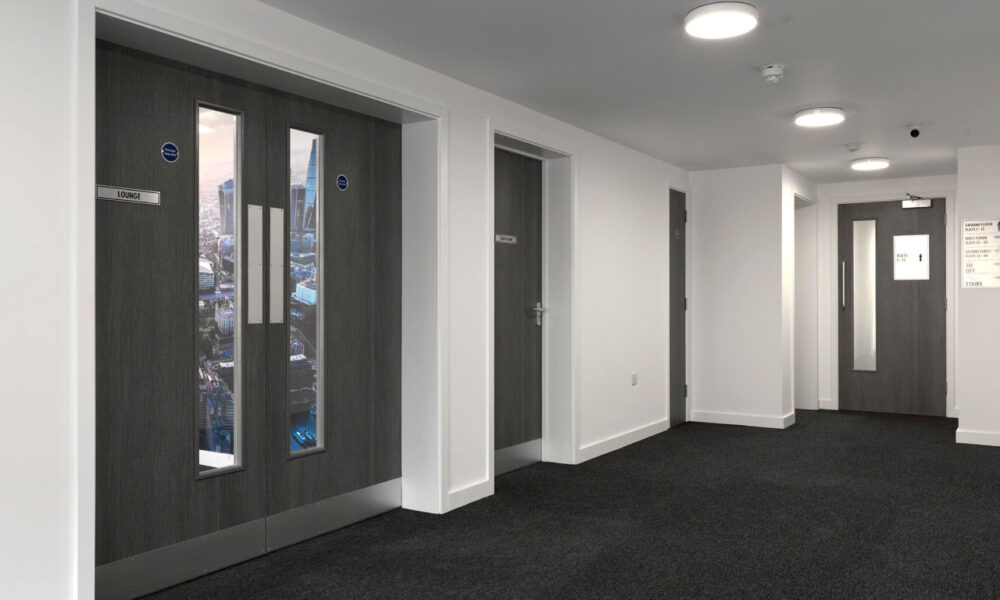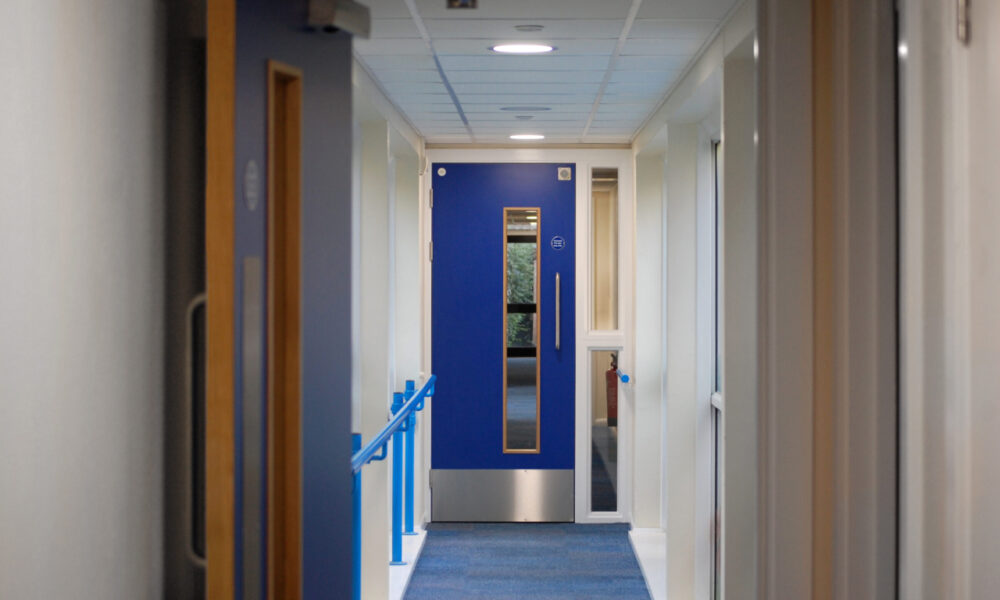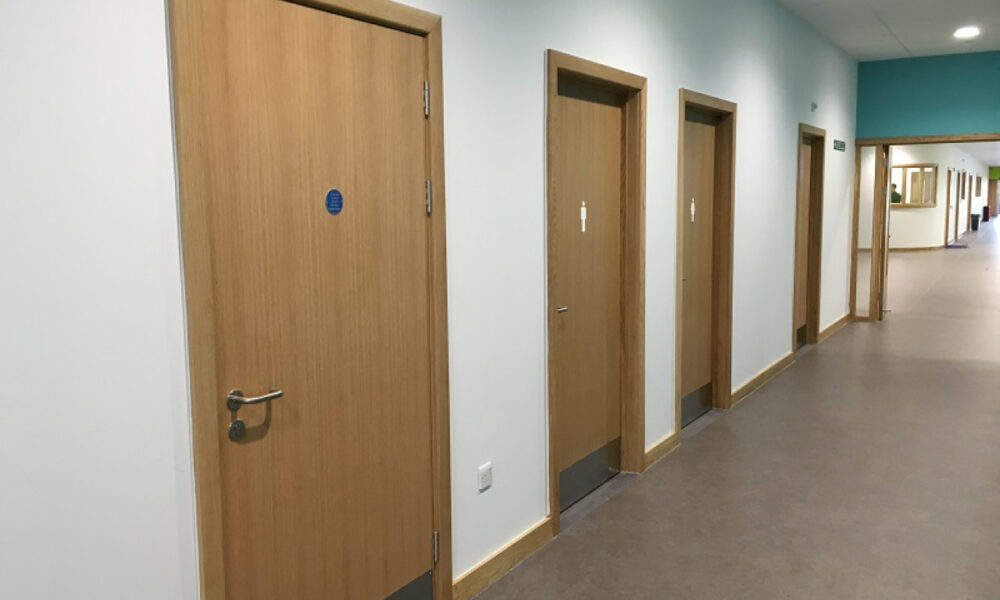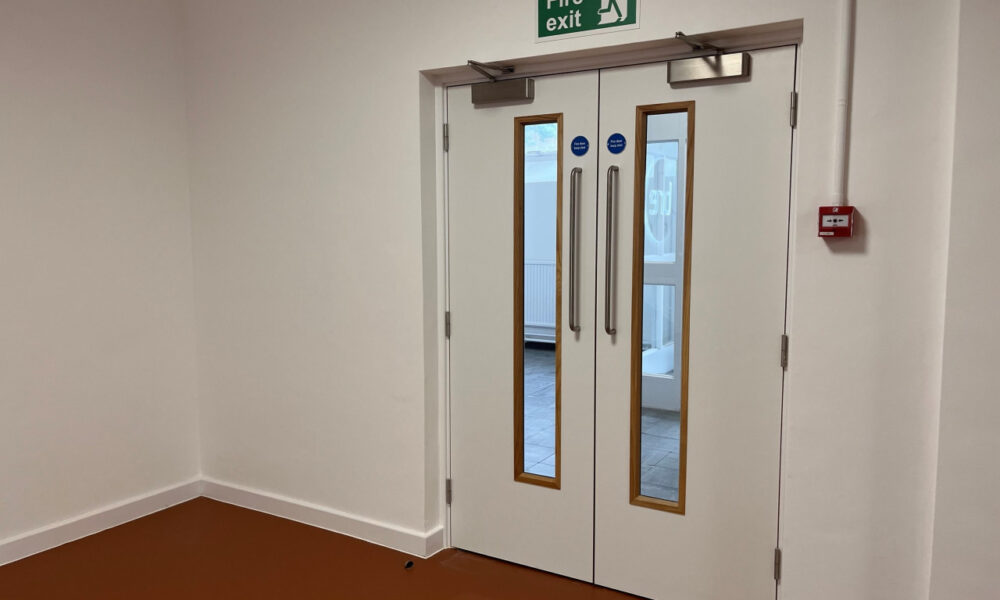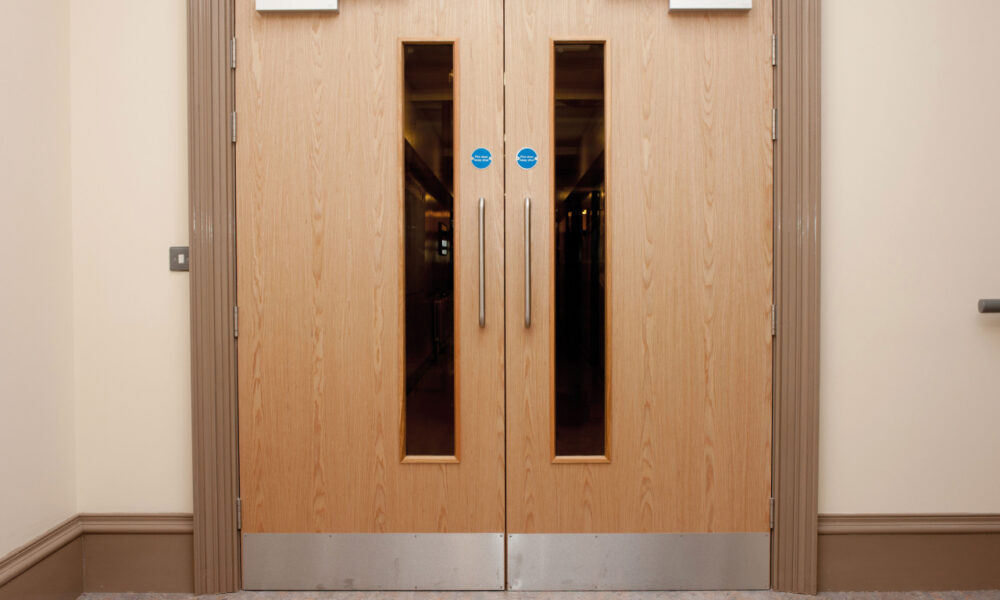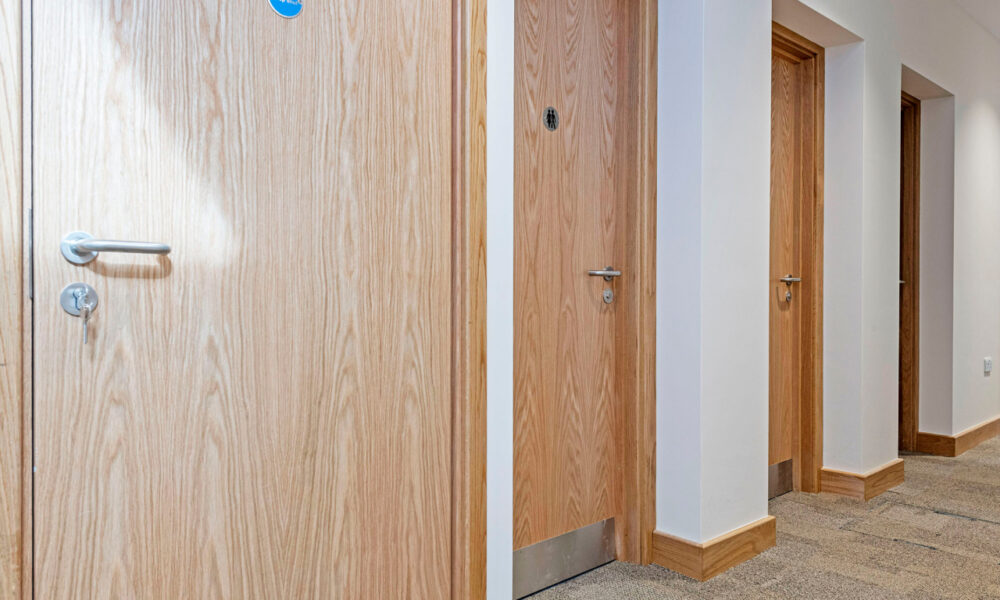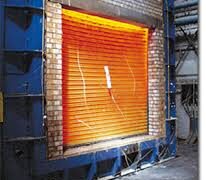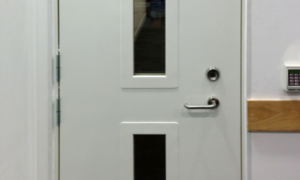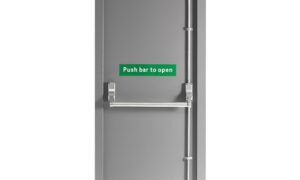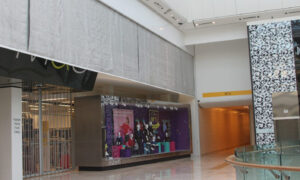We can make doors with almost any glazing design, size and finish, which would be determined by where the door is going and the fire and acoustic performance it needs to achieve. Our technical expertise will ensure you get the right doors for your commercial project to meet standards and deliver the wow factor.
All our doors are cyclic tested to severe duty and stand up to the most demanding environments, making them perfect for use within commercial buildings, hospitals, penal and education facilities and any project requiring Secured by Design (SBD) specification.

